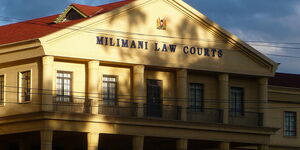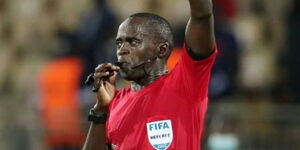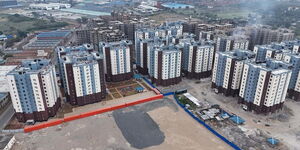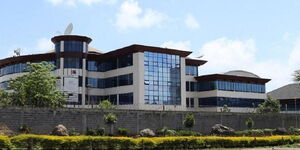In an unprecedented twist, five Supreme Court judges—Philomena Mwilu, Mohammed Ibrahim, Smokin Wanjala, Njoki Ndungu, and William Ouko—have recused themselves from hearing a high-profile appeal involving former Cabinet Secretary Raphael Tuju.
This marks the first time in Kenya's judicial history that such a large number of judges have withdrawn from a single case, raising concerns about the future of the proceedings and the integrity of the judiciary.
Tuju’s case stems from a bitter dispute over a Ksh1.5 billion loan from a regional lender, which he claims was never fully disbursed. He petitioned the court to halt the case proceedings, citing misconduct and bias among the Supreme Court judges. According to Tuju, the judges have ignored critical legal procedures and are working toward a "predetermined outcome."
The accusation against the judges also reads, “The Judges’ actions are not only unfair to the appellants/applicants, they are also indicative of the fact that the Court is working towards a predetermined outcome. The deponent goes on to aver that the Court has actively and continually worked to defeat the appellants/applicants’ rights to fair hearing and access to justice.”
The Supreme Court judges, in their collective response, expressed deep concern over the accusations, stating that allegations of impropriety and bias against them undermined their ability to provide a fair hearing. “When a party accuses the Bench of lack of impartiality and integrity, we are left with no choice but to step down to preserve the integrity of this institution,” they remarked.
In determining to recuse themselves, the five justices, who have over the last decade been involved in critical cases including the landmark overturning of Presidential Elections in 2017, stated, “Having arrived at the inescapable conclusion that we are being accused of bias and working towards an undisclosed predetermined outcome, we are strongly persuaded that our further participation in these proceedings would not serve the ends of justice, at least in the eyes and perception of the appellants/applicants.”
The judges’ decision to recuse themselves has sent shockwaves through legal circles. Many fear that this may set a dangerous precedent, allowing litigants to remove judges from cases simply by questioning their integrity. This tactic could potentially be abused, throwing the judicial system into disarray. Despite this, the judges made it clear that they could not, in good conscience, continue with the case while their fairness was in question.
While this move has shaken the legal establishment, it has also left Tuju’s case in limbo. With five justices stepping aside, the appeal cannot proceed, raising the question of how justice will be served. The recusal of the entire bench also highlights a gaping hole in the judicial system: what happens when the highest court in the land is accused of bias? It’s a conundrum that could take years to resolve.
The controversy surrounding Tuju's Ksh1.5 billion loan began in 2015 when his company, borrowed $9.1 million to develop high-end residential units. Tuju claims the lender withheld a significant portion of the loan, which would have funded the construction, leaving his project incomplete and jeopardising his ability to repay the debt.
However, the bank countered these claims, arguing that Tuju's company breached the terms of the loan agreement by failing to meet repayment deadlines. By November 2017, the company owed Ksh1.8 billion, leading to the current legal battle that has now escalated to the Supreme Court.












